In a regular feature, we’ll explore Student Life, inviting the students of the Department of Modern Languages and European Studies, as well as representatives of the various student societies, to reflect on their experiences at the University of Reading and beyond.
To inaugurate the series, we’ve invited Mike Ballmann, a student of French and Economics, to tell us about his thoughts on graduation day and on the time he’s spent in Reading.
 I remember when I was a Fresher about a thousand years ago. It was actually four years, but university has the ability to warp time and make it almost irrelevant as you go about your business in the bubble that is Reading. I can vividly remember during that young and care-free part of my university life talking to older students who always said the same thing: “enjoy Freshers’ Year whilst you can, it gets so much worse later on.” I remember thinking that that must be an exaggeration, how hard can it be?
I remember when I was a Fresher about a thousand years ago. It was actually four years, but university has the ability to warp time and make it almost irrelevant as you go about your business in the bubble that is Reading. I can vividly remember during that young and care-free part of my university life talking to older students who always said the same thing: “enjoy Freshers’ Year whilst you can, it gets so much worse later on.” I remember thinking that that must be an exaggeration, how hard can it be?
Fast forward four years and I was now relaying the same advice to the latest crop of first years. No one can deny the step up from second to final year is enormous – certainly no one with whom I spent hour after hour in the library until stupid o clock in the morning would argue that point. And thousands upon thousands of students up and down the country slave away until the small hours for the same reason: a degree classification and the ability to prance about in a hat and a gown for a day.
 When put like that, it is very easy to wonder what the point is. Every so often a success story appears about a multi-millionaire who didn’t go to university but yet have all the wealth, success and power that one could ever want. Well yes, but that would be completely missing the point. If my experience at Reading has taught me nothing else, it has certainly educated me more about the world than I think I could have learned without it. I have met people from every continent in the world during my four years in Reading and, with a shared mission to finish studies and graduate, I have made friends for all over the world as a result.
When put like that, it is very easy to wonder what the point is. Every so often a success story appears about a multi-millionaire who didn’t go to university but yet have all the wealth, success and power that one could ever want. Well yes, but that would be completely missing the point. If my experience at Reading has taught me nothing else, it has certainly educated me more about the world than I think I could have learned without it. I have met people from every continent in the world during my four years in Reading and, with a shared mission to finish studies and graduate, I have made friends for all over the world as a result.
This highlights the wonderful experience that graduation was. It was such a lovely afternoon with friends who I have known for four years and others who I have met more recently all wearing smart academic dress for one final celebration. The ceremony was only about forty five minutes long, but everyone spent the day sitting around outside the beautiful London Road campus joking, laughing, drinking Pimms and enjoying the final day of, what for both me and the majority of other students, the best four years of our lives.
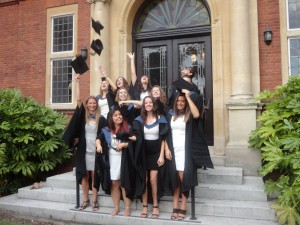 I have spoken to a few people in the preparation of this blog about what university meant for them and what their abiding memory of it will be, and a theme came up again and again: friendship. The friends and the community that each and every one of us have made at university has made studies at Reading the most fantastic, insightful and worthwhile period of our lives. I did some work for the university at Visit Days and Open Days during the course of my final year and a question that was asked of me again and again was ‘why should I pay all that money for more school, what’s the point?’
I have spoken to a few people in the preparation of this blog about what university meant for them and what their abiding memory of it will be, and a theme came up again and again: friendship. The friends and the community that each and every one of us have made at university has made studies at Reading the most fantastic, insightful and worthwhile period of our lives. I did some work for the university at Visit Days and Open Days during the course of my final year and a question that was asked of me again and again was ‘why should I pay all that money for more school, what’s the point?’
 Because tuition is only a small part of university. The friends, the enjoyment, the laughter, the adventures, the challenge, the rigour and the sense of achievement, those are the point of university. Graduation is the culmination of that, and it is my unshakable belief that you can’t ever put a price on that.
Because tuition is only a small part of university. The friends, the enjoyment, the laughter, the adventures, the challenge, the rigour and the sense of achievement, those are the point of university. Graduation is the culmination of that, and it is my unshakable belief that you can’t ever put a price on that.
So after the ceremony university is officially over and it will be onwards and upwards to new adventures after my four years at the University of Reading. But never goodbye.
 After not doing as well as I had hoped in my French A level, I was nervous to begin my studies at the University of Reading. However, at Reading I was given the opportunity to refresh my knowledge of the French language from scratch. This, together with my experience on my Year Abroad allowed me to build my confidence and offered alternative ways of understanding various elements of the course. The lessons that take place in Reading are small and intimate which enables tutors to build a rapport with students and give individual support which I found to be invaluable. The support and opportunities offered to me at the MLES department within the University of Reading gave me a platform from which I was able to excel and eventually led to me finishing amongst the top of my year group in my finals and establishing a position on a PGCE course in the future.
After not doing as well as I had hoped in my French A level, I was nervous to begin my studies at the University of Reading. However, at Reading I was given the opportunity to refresh my knowledge of the French language from scratch. This, together with my experience on my Year Abroad allowed me to build my confidence and offered alternative ways of understanding various elements of the course. The lessons that take place in Reading are small and intimate which enables tutors to build a rapport with students and give individual support which I found to be invaluable. The support and opportunities offered to me at the MLES department within the University of Reading gave me a platform from which I was able to excel and eventually led to me finishing amongst the top of my year group in my finals and establishing a position on a PGCE course in the future.








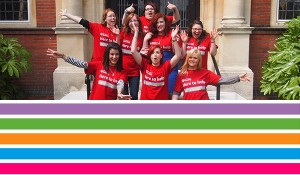

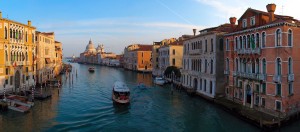


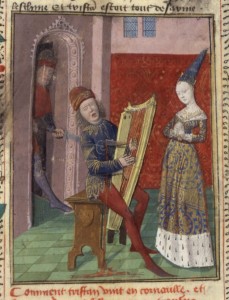
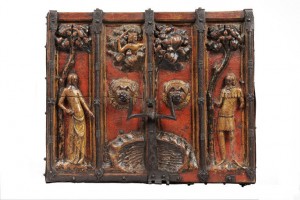
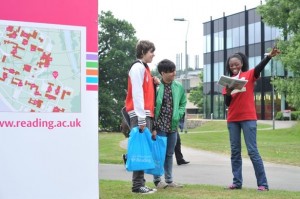 At
At 
